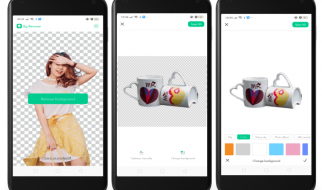So much has changed since I published my first blog post about the Robinhood stock app. We?ve gone from Obama to Trump, but the market seems to have .05% fucks to give about all that.
My portfolio has gained more than 65% in value since I started using Robinhood. Sixty-five percent seems insane, even in this long-running bull market. So what did I, as a new young-ish investor learn from this experience? Quite a few things, actually.
(If you aren?t familiar, the Robinhood app lets you buy and sell individual stocks from your phone without paying brokerage fees.)
1. Dividends ? research before you buy.
While the market (particularly tech stocks like Amazon and Netflix) seems to be doing well right now, all that could change. One regular way to get cash into your Robinhood vault is through quarterly dividends.
Dividends are real money that companies give you for owning stock. They?re tied to how the company is doing (broadly). I even get dividends from stocks I consider ?just okay? like Target ? $.62 per share around Christmas. HSBC is another stock that traditionally gives good dividends, and Apple too. These dividends may seem small, but they really add up depending on how many stocks you own. And they?re cash! (But note: you WILL be taxed on them. Robinhood provides you a form for that.) If you want to learn more about long-term high dividend stocks, here?s an article I pulled from Google that seems legit.

2. You can attend shareholder meetings! Vote! Theoretically!
By becoming an official shareholder in a company via Robinhood, you have a voice. Well, virtually. Robinhood makes joining earnings calls easy by sending you a notification close to the meeting start times.
I have to admit: I have never joined one of these calls. I?m on the West Coast, so they?re often at wonky times for me. I would be more likely to join if Robinhood could send me a calendar invite for those meetings. So far, it doesn?t have that functionality but maybe some day.

3. Don?t fall for the hype.
When you open the Robinhood app, you?ll be greeted by as many as 10 news alerts or notifications. I read a lot of them, as well as too many headlines from various financial sites, and got perhaps a little too excited.
I bought a bunch of stocks like GoPro and Fitbit that articles had said, at one point, were primed for success. And then there?s Snapchat, the most hyped tech IPO of 2017.
It hasn?t gone well. GoPro has lost about 44% of its value since I bought it last fall. Fitbit has lost 47% (!). From now on, since I?m still in my 30s and have time on my side, I?ll stick to more tried-and-true companies like the FANG stocks (Facebook Apple Netflix Google) that will have long-term gains and dividends.
I?ll hold onto my money-losing darlings for a little longer, hoping they get acquired or?. something. But eventually I?ll probably have to face the reality and write off the loss on my taxes.

4. Real $ gain vs. percentage gains
A lot of my portfolio?s performance is due to buying multiple shares of high-growth stocks, which multiplied my gains. Currently the stock that made me the most real money is Netflix, trading at 190% of what I bought it for. I only have 4 shares, so the gain is about $720 total.
Compare that to Google, which I have 2 shares of. The shares were $861 when I bought, and are now worth $1189. So, a total return of about $650. But if I had bought 9 more shares of Netflix at $94, rather than 1 share of Google at $860, I would have $1,629 in value instead of $650.
Some of this is Monday morning quarterbacking, but after nearly 2 years using Robinhood, I personally would rather get 76 shares of HP at $10.75, or 27 shares of HSBC at $31, than 1 share of Amazon at $860. If I thought Google or Amazon were going to do a stock split, this might be different, but Google hasn?t done that since 2014 and Amazon since 1999. As a small-time investor who has limited funds, I feel more comfortable buying multiple shares of lower-value stocks. It gives me more flexibility to buy when I want, without missing out too much on growth.
5. Index funds vs. individual stocks.
One thing that Robinhood does not do (yet!) is let you buy index funds. Index funds are basically like a stock that?s made up of fractions of other stocks. It can be made up of fractions of shares from literally hundreds of companies. They?ve been shown to perform well, and reliably, as long as the market overall is doing okay. A lot of us have them in our 401k already.
The volatility of individual stocks can be amusing, much like a reality tv show you half-watch while checking Facebook on your phone, but also draining if you don?t have time for the drama. So yeah, I?m looking into an IRA with index funds to help balance out my Robinhood action.
So that?s about it except? cryptocurrency
I just heard a few days ago that Robinhood has a beta of its cryptocurrency trading feature. I?m currently reading up on cryptocurrencies and talking to people who are smarter than me to figure out if this is something I want to take a chance on. I?m still struggling to grok the technology behind blockchain and Bitcoin. I wouldn?t stake my rent money on crypto (?#3: Don?t fall for the hype), but I?m interested in taking a little flutter.
Okay, that?s it. For real this time. If you?ve read this far, wow, I?m kind of surprised. But grateful! Thanks! And best of luck to you out there.

